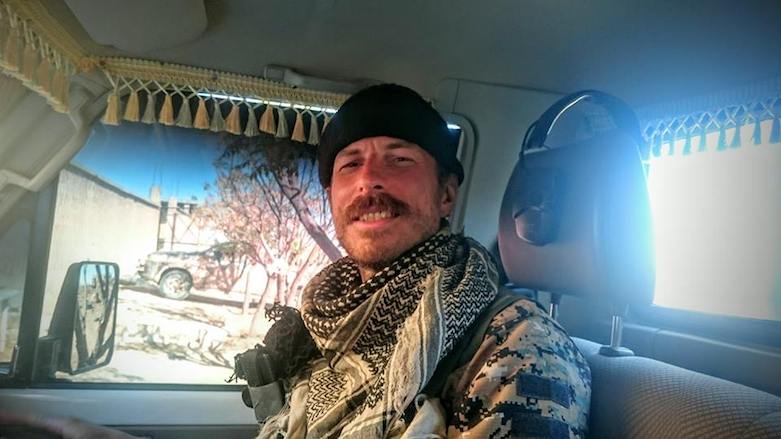Danish anti-IS volunteers could face years in jail

ERBIL (Kurdistan 24) – A Danish citizen who fought the Islamic State (IS) in Syria was sentenced to six months in jail in June, but the Danish prosecution is asking for a higher prison sentence.
Tommy Mørck, 40, fought against IS with the People’s Protection Units (YPG) for six months a few years ago during the height of the US-led Coalition’s campaign against IS.
According to the 40-year-old, the Danish prosecution is cracking down on those who fight IS instead of going after extremists that have returned to Denmark.
“This law was created to ‘crackdown’ on people who join IS. But guess how many terrorists have been convicted by now?” Mørck told Kurdistan 24. “The law is two years old, and I am still the only one ever charged for breaking it – and I was AGAINST IS.”
In 2014, Denmark joined the US-led Coalition, sending F-16 fighter jets and Special Forces in 2017. This year, Denmark pulled its Special Forces from Iraq.
Mørck has not yet gone to jail since he is still waiting for the next court case. “I was convicted to six months in prison, but the prosecutor appealed because he wants a harder sentence,” he added. He could now face up to six years in jail if convicted.
Mørck fought in the offensive to take Raqqa from IS last year and was convicted of a law passed in 2016 that bans Danish citizens from entering or residing in specific conflict areas.
“There are places abroad Danish citizens aren’t allowed to go (I am convicted by that law), members of certain gangs in Denmark get double the sentence and the police can take a passport and give a travel ban with an administrative decision (no legal process, judge, or lawyer), like it happened to me and Joanna Palani,” he said.
Palani, a young Danish Kurd, who fought IS, was also sentenced to nine months in prison after she returned to her home country for violating her travel ban.
Mørck said Palani was sentenced under the same passport law where she had her passport confiscated and was given a travel ban. However, she was not charged with breaking the other law: “stepping on an illegal piece of dirt.”
“She violated her travel ban and was sentenced to nine months in prison. We both have an appeal at a higher court coming up this fall,” he added.
“It isn’t illegal to join the YPG, just to be in certain areas in Rojava (literally setting your foot on the wrong piece of dirt). They can put you in prison for up to six years if you go to certain places without [permission] from the government,” Mørck concluded.
According to Mørck, these laws show that Danish lawmakers are moving toward an increasingly authoritarian direction in the last few years.
“They just made it illegal to cover your face, especially with a burqa or niqab, and are now working on laws to punish crimes committed in certain areas (with high populations of immigrants and their families) twice as hard and to give the army more authority inside the country,” he added.
Denmark is not the only country prosecuting or harassing Western volunteers that fought the extremist group. Foreign volunteers were also arrested, jailed, or investigated in the UK, Spain, the Netherlands, and other European countries.
Last month, charges were dropped for British volunteer James Matthews, 43, who fought IS.
Syrian Kurdish officials have condemned the attempts to prosecute volunteers from Western countries that joined the YPG, arguing that those volunteers protected their own capitals by joining the Kurdish forces to fight IS.
Editing by Karzan Sulaivany
